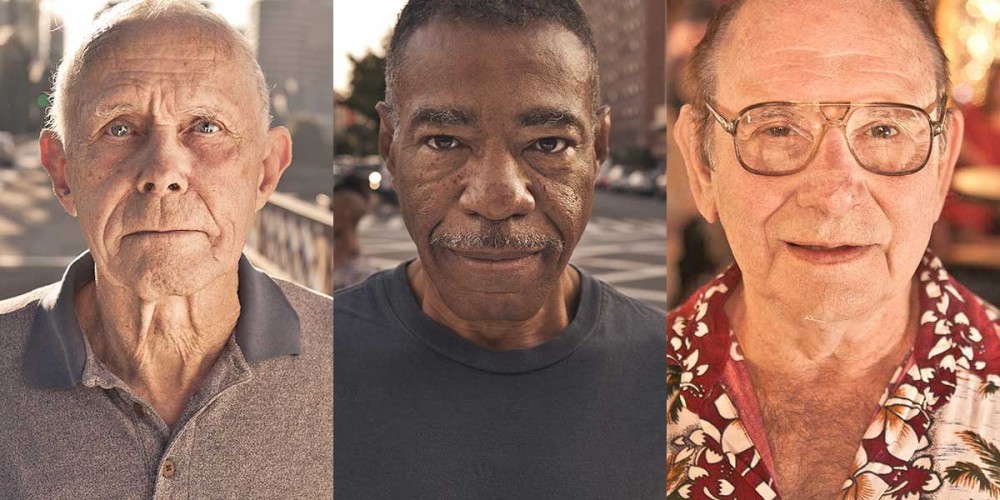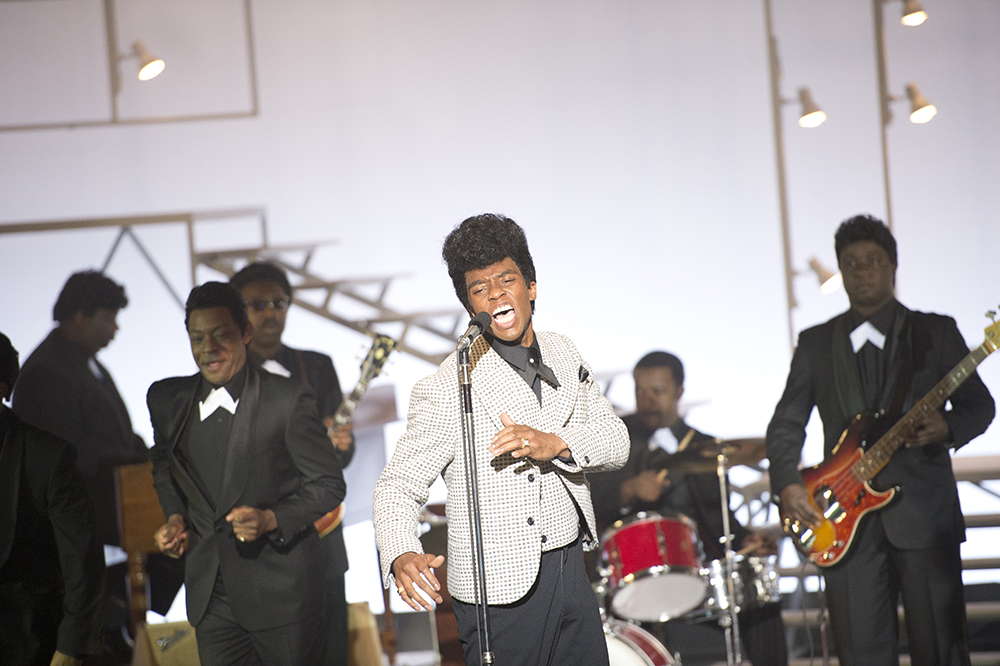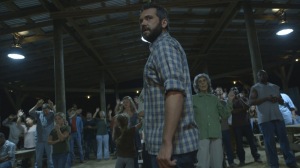Some days, you just can’t muster up enough energy to write an entire review on a film. Other days, the words just won’t come out, but you do want to give it a bit of a push into the limelight or a toss in the trash. For all of those days, there’s capsules. And with that being said, here’s our first entry in Short Cuts, a new column where we chat about a couple of movies we’ve seen recently in (mostly) short form (under 500 words) rather than the typical long-form reviews and essays we love putting out. Today, that includes a charming musical, an atypical queer documentary, and a mid-tier biopic on a legend.

Begin Again (John Carney, 2013)
Speaking as one of the few people in this world who was never swayed much by Once (outside of its charming Academy Award winning tune “Falling Slowly”), I was wary walking into John Carney’s Begin Again. Its opening scenes — a frustrating barrage of the same event shown through not one, not two, but three different lenses with days or weeks of character background added in — may throw some off their game, but once you power through, everything’s “Coming Up Roses.” Yes, those are lyrics to an old tune from Gypsy, but also the title of one of many charming songs that Keira Knightley serenades the audience and her co-stars (Mark Ruffalo and Hailee Steinfeld among others) with as soon as that first act is over.
What the first act does, though, is essentially set up the whole dang plot: Knightley’s a songwriter scorned by her rising musician boyfriend (whom she helped establish) who meets an alcoholic ex-record label producer (Ruffalo) that thinks he’s the best talent he’s heard in years. Needless to say, the two decide to make an album together, the gimmick of which is that it’s recorded outdoors in New York City at different locations. As conventional as the narrative sounds, it’s the fact that their relationship isn’t played for romance, but rather a more meaningful connection between two people desperate to make a great work of art.
That being said, it’s Knightley’s performance and the music that get the most mileage out of what Begin Again wants to deliver. Her recent non-period roles have been vaguely disappointing to me (Seeking a Friend for the End of the World especially so), and watching her stick to a character as interesting and driven as Gretta is rather refreshing. As usual, she works well off every other actor on screen, whether it’s playing for laughs with James Corden or pulling your heart-strings in scenes with Adam Levine. Most importantly though — as someone who would have never expected it — it’s her surprising singing voice that pulls through to your very core.
Begin Again isn’t a perfect musical by any means, but those who enjoyed and appreciated the honesty and realistic atmosphere that Once had will likely find themselves just as swayed by this film as well. It’s the kind of movie that makes you want to go out and get the soundtrack immediately after, and, more importantly, the kind that reminds us that a little heartbreak isn’t anything to be afraid of and often results in the best works of art.

Before You Know It (PJ Raval, 2013)
I’m fond of anything that features a different scope of the gay experience than your typical young white queer boys going out and partying all night, and PJ Raval’s documentary delivers exactly that. The documentary follows three very different older men who discovered their sexuality at their own points in life and are trying to get through life.
The first, Dennis, is the most heartbreaking of the bunch; his narrative mainly focused on his love of women’s clothing, his fear of being left out, and his longing for love that leads to nothing but sad, sexual experiences. His tale is the most impacting of the three, even though it’s occasionally marred by some dumb scenes (like one of the workers at his queer elderly housing residency asking him about Lady Gaga). Watching him walk by dozens upon dozens of gay men on a cruise ship while in women’s clothing and being made fun of and ignored is as affecting as it gets, but it’s a shame the documentary doesn’t remain this strong.
The second narrative is that of a Ty, a queer activist for SAGE (Services and Advocacy for GLBT Elders), who finds himself in Harlem when gay marriage is legalized. However, he’s not the one getting married; his best friend is. In a short Q&A over Skype following my screening of the film, Raval stated that he wanted to focus on people that weren’t typical of queer narratives. Picking someone who constantly reminds the audience that he doesn’t want to get married, but shows on camera that he really does through his jealousy and the way he tries to nitpick events in his friends wedding. He’s the weakest link of the trio of men, simply because as the film progresses, one realizes that the interracial couple whose wedding he attends would be a superior subject.
But the tiresome nature of Ty’s tale is counter-acted by placing Robert’s scenes immediately after his (and before returning to Dennis as the film works cyclically). Robert is a queer bar owner in Texas who constantly provides a delightful atmosphere for his patrons and workers. He does drag sequences to The Muppets’ ”Mahna Mahna” among other tunes and also spends a lot of time contemplating life. While his segment starts off strong, it’s a little bogged down by the end-game, in which a lawsuit threatens his bar. That might sound like an interesting twist to his life, but it leaves Robert and his joie de vivre off screen, making the last act a struggle to get through.
Before You Know It is an admirable documentary; one that actually holds an interesting in members of the queer community that typically wouldn’t get a spotlight. With that said, it’s not as strong as it could be with some shaving of scenes and a little more focus. Here’s hoping the queer community chooses to investigate more of this and less of the party scene.

Get On Up (Tate Taylor, 2014)
Check it out, everybody. Tate Taylor continues to be a middling director, who will likely get some praise thrown at the way of his latest film, Get On Up, for no good reason. For a film about James Brown, you’d expect something with endless energy and an abundance of soul. This is not that movie. This is kind of a mess actually.
Get On Up is the latest Hollywood biopic to make its way into theaters; this time covering the life of the Godfather of Soul. It goes from the eighties to his childhood to some interviews to some concerts and then… back to his childhood? And back to interviews midway through his career? And interviews with other people about Brown? And then dancing for white people in a Christmas sweater a little earlier? And a random concert? Childhood again? Fighting with band mates? The eighties? The nineties? Childhood again? There is absolutely no stable chronology? Why is James Brown occasionally having narrative asides where he speaks to the audience? Those are the questions I’m curious to ask the folks who made this movie, frankly. It’s baffling how fractured the whole thing is, but that’s not the most appalling part of it all.
What’s shocking is the fact that pretty much every black woman in the film exists solely as a mother/sister figure or a whore — sometimes both at once — all of whom essentially exist to be overtly sexual for James Brown’s pleasure. Scenes of domestic violence are quickly followed with scenes of a wife jumping on a bed to arouse her man. All feminine characters are handled poorly though, as Little Richard’s femininity in particular came off as more sassy gay male stereotype than anything else in the one scene he’s attributed.
That being said, Get On Up deserves mention of two excellent performances; one lead and one supporting. Chadwick Boseman embodies Brown in practically every way, and never misses a beat when it comes to portraying Brown, proving entertaining even in song performance segments. Along his side practically the entire time is Nelsan Ellis though, whose character one can genuinely sympathize with in comparison to the massive ego that Brown is portrayed as. Some scenes do attribute Brown with more than just being an ego, specifically a concert after Martin Luther King’s death that shows his handling of racial tensions in an interesting manner.
For the most part it’s easy to realize that this film wasn’t made by people who genuinely had an interest in James Brown, nor in the characters they were placing on screen. Even worse is the fact that there are dozens of “white people” jokes — which in good measure and with good writing are absolutely golden (an example) — that weren’t written by black writers. Knowing that Spike Lee could have been the one to direct this instead of the already problematic Tate Taylor (remember how The Help indulges in stereotypes more often than not folks) is a little depressing. With Get On Up, we’re left with nothing more than the kind of biopic you might find on Lifetime, only accompanied by bigger names.
—
All three films above are currently playing in theaters.



 Derek
Derek
 Isabelle
Isabelle